Anticipation for the summer gardening season peaks in June. Seeds have been sown, edibles started and watering schedules adjusted. Gardeners across the U.S. are now enjoying their spring efforts and making sure that their gardens thrive and perform throughout summer's long days and warm nights.
Start an outdoor project this month, admire flowering natives and keep your eyes and ears peeled for buzzing bees and hummingbirds — there's even still time to plant edibles for a summer filled with fresh, local produce. Here's what to do in June by U.S. region.
Find your June garden checklist:California | Central Plains | Great Lakes | Mid-Atlantic | Northeast
Pacific Northwest | Rocky Mountains | Southeast | Southwest | Texas
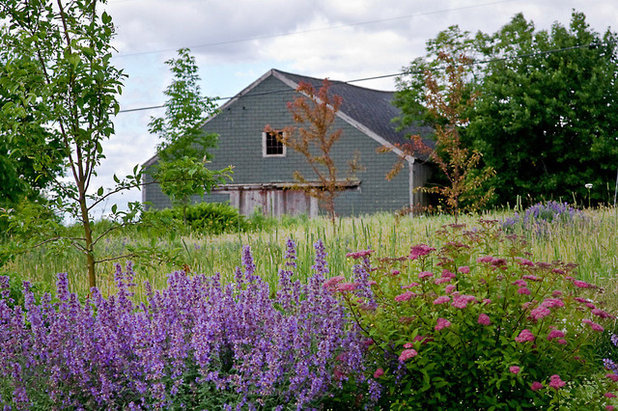
Matthew Cunningham Landscape Design LLC
Northwest. "Buy June-blooming plants now, so you can select the exact colors and varieties you prefer," writes landscape designer Genevieve Schmidt. "Visiting plants in the nursery is one of the easiest ways of seeing the subtle differences between each plant. That's why it's a good idea to buy plants at the nursery every month, so you can evaluate which areas of your garden need more interest in each season and coordinate the perfect show."
Get her Pacific Northwest June checklist
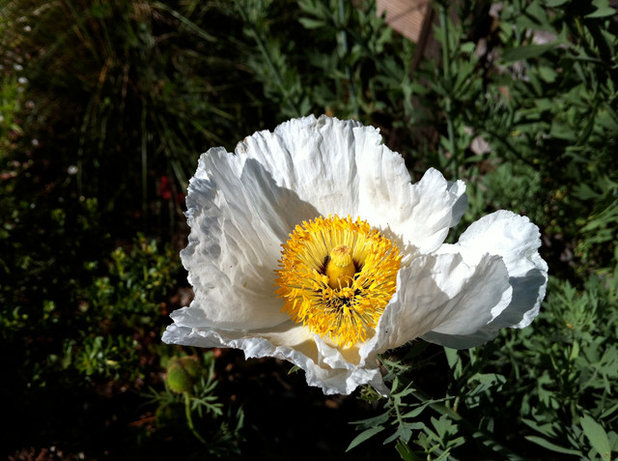 California.
California. "If you've never seen
Matilija poppy before, it's bound to catch your eye in June, as the bloom season for California native plants winds down," writes garden editor Bill Marken. "Native to Southern California, it's a strapping shrub with bright white, yellow-centered flowers, up to 9 inches wide. It's often called fried egg plant, for obvious reasons. Definitely not dainty and definitely not for formal gardens, this is a good choice for wilder, drier parts of a big garden, particularly hillsides. Beware, though: In favorable spots it can spread widely by underground suckers, which is great for erosion control but not so good if you're trying to maintain better-behaved plants nearby."
Get his California June checklist
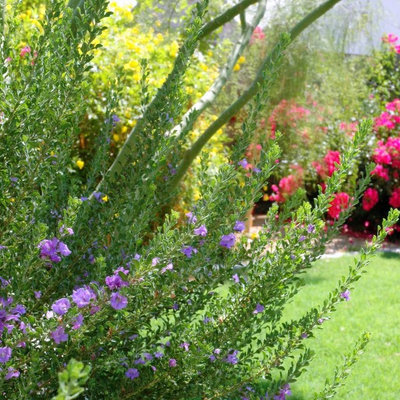
Noelle Johnson Landscape Consulting
Southwest. "Plants struggle most in June, when the temperatures are hot and the humidity is very low," says Arizona horticulturalist Noelle Johnson. "Relief will come with the summer rains and higher humidity in July. In the meantime it is important to make sure that your plants are receiving enough water."
Get her Southwest June checklist
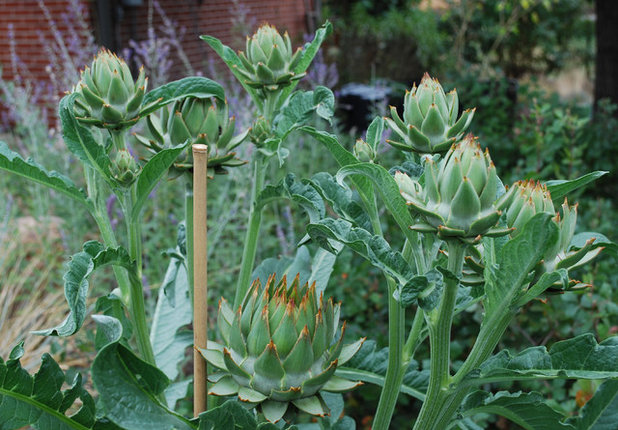
Jocelyn H. Chilvers
Rocky Mountains. "Growing delicious foods and seasonings for your table is one of the most rewarding aspects of gardening," says Colorado landscape designer Jocelyn Chilvers. "If one of your goals this month is to get on the grow-your-own bandwagon, then remember to prioritize your planting schedule to accommodate the time-sensitive needs of your favorite plants; many depend on a specific number of days from planting until they are mature enough to harvest."
Get her Rocky Mountains June checklist
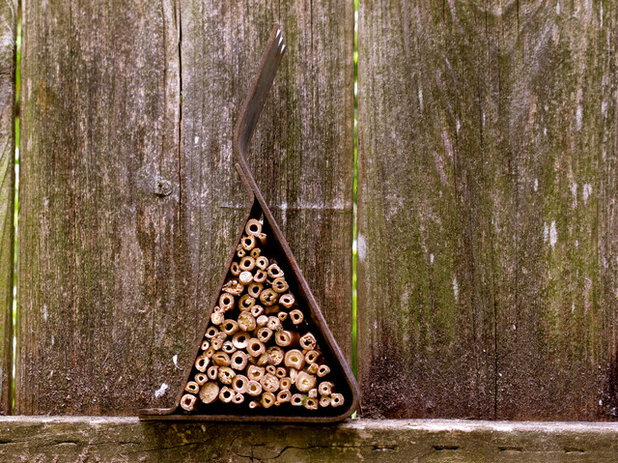
Urban Hedgerow
Texas. "Summer is the perfect time to plan some creative garden projects," writes landscape designer Jenny Peterson. "Add a compost bin, build a simple deck, install a water feature or make an insect habitat."
"Insect habitats are a creative way of displaying dead wood, leaves, tubes, sticks, straw, hay and loose bark to encourage the good guys to stick around and do their part to keep our gardens healthy," says Peterson. "They're also great projects to do with children, who will learn lessons about recycling, life cycles and garden health in the process."
Get her Texas June checklist
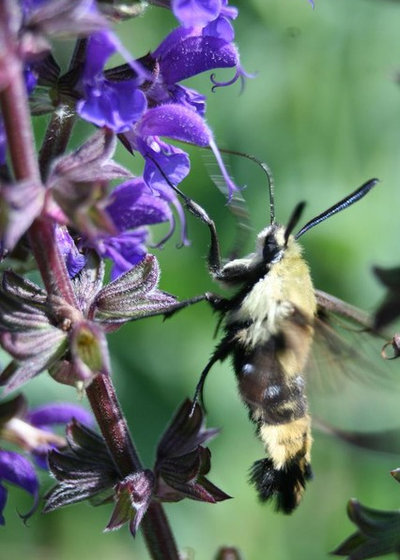
Benjamin Vogt / Monarch Gardens
Central Plains. "If you don't have hummingbirds, never fear; moths are here to take up the slack," says Nebraska garden consultant Benjamin Vogt. "This is a bumblebee hummingbird moth on
Salvia 'May Night'. With their long proboscis, they prefer tubular blooms like salvia and penstemon."
Get his Central Plains June checklist
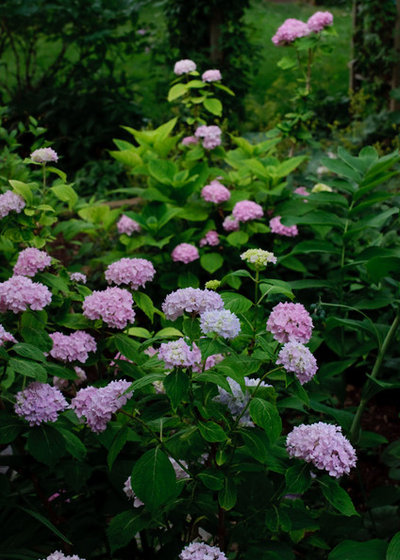
Barbara Pintozzi
Great Lakes. "While the big show is over in the shade garden, there are still blooms to be found," writes Illinois garden coach Barbara Pintozzi. "
Goatsbeard (
Aruncus spp),
Astilbe,
masterwort (Astrantia spp) and the
mophead hydrangeas (here
Hydrangea macrophylla 'Bailmer' Endless Summer and 'Penny Mac') brighten up shady corners. Hydrangeas bloom pink in the alkaline soil of most Great Lakes gardens. Adding an acidifying fertilizer can make them bluer."
Get her Great Lakes June checklist
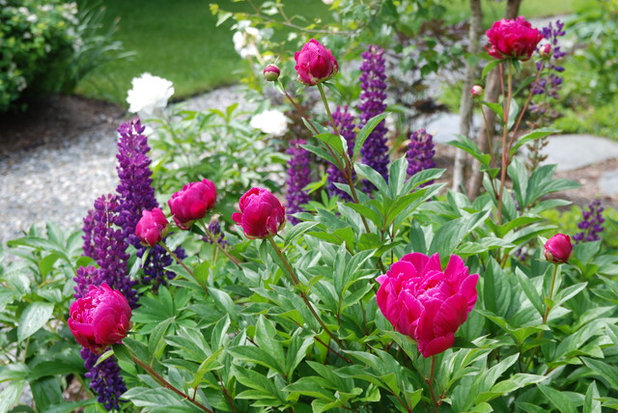
Paintbox Garden
Northeast. "Peonies take center stage when they open this month — they're so beautiful, lush and fragrant," writes Vermont landscape consultant Charlotte Albers. "Invite your neighbors to cut bouquets and fill your house with mason jars of blooms in luscious hues."
Get her Northeast June checklist
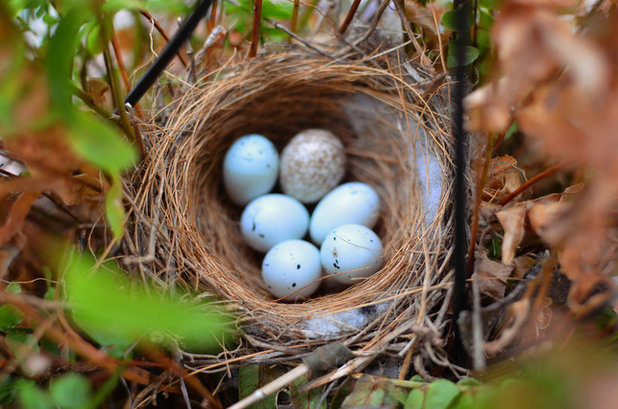
Amy Renea
Mid-Atlantic. "The back screen door of spring is slamming behind us, but there are still little babies being born (aside from those pesky bugs)," says gardening writer Amy Renea. "Save the pruning until all little eggs have hatched and the birdies are flying free."
Ger her Mid-Atlantic June checklist
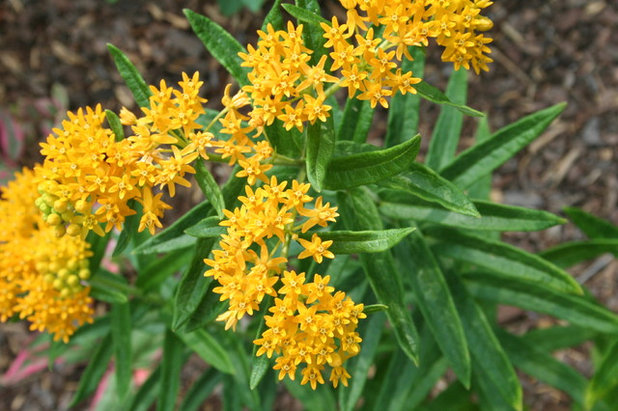
Gardening with Confidence®
Southeast. "Milkweed is the only host plant for the Monarch butterfly.
Asclepias tuberosa is one species of milkweed that is also a pretty addition to the garden, but expect (and hope) it to be eaten to a nub," says North Carolina gardening writer Helen Yoest. "The female Monarch will lay her eggs here. Soon you will see tiny caterpillars that will slowly mature as they feed on the milkweed plant. The adults also enjoy the nectar."
Get her Southeast June checklist





